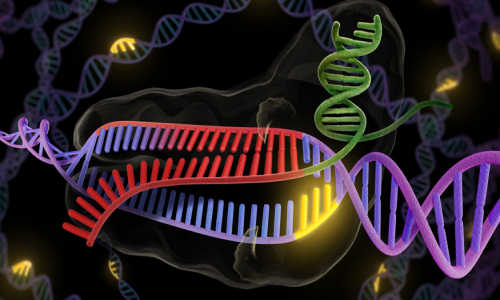A group of 18 scientists and ethicists today warned that a revolutionary new tool to cut and splice DNA should be used cautiously when attempting to fix human genetic disease, and strongly discouraged any attempts at making changes to the human genome that could be passed on to offspring.
Among the authors of this warning is Jennifer Doudna, the co-inventor of the technology, called CRISPR-Cas9, which is driving a new interest in gene therapy, or “genome engineering.” She and colleagues co-authored a perspective piece that appears in the March 20 issue of Science, based on discussions at a meeting that took place in Napa on Jan. 24. The same issue of Science features a collection of recent research papers, commentary and news articles on CRISPR and its implications.
“Given the speed with which the genome engineering field is evolving, our group concluded that there is an urgent need for open discussion of the merits and risks of human genome modification by a broad cohort of scientists, clinicians, social scientists, the general public and relevant public entities and interest groups,” the authors wrote.
Doudna, director of UC Berkeley’s Innovative Genomics Initiative, was joined by five current and two former UC Berkeley scientists, plus David Baltimore, a Nobel laureate and president emeritus of the California Institute of Technology, Stanford Nobelist Paul Berg and eminent scientists from UC San Francisco, Stanford, Harvard and the universities of Wisconsin and Utah. Several of these scientists are currently involved in gene therapy to cure inherited diseases.
Such warnings have been issued numerous times since the dawn of genetic engineering in 1975, but until now the technology to actually fix genetic defects was hard to use.
“However, this limitation has been upended recently by the rapid development and widespread adoption of a simple, inexpensive and remarkably effective genome engineering method known as CRISPR-Cas9,” the scientists wrote. “The simplicity of the CRISPR-Cas9 system enables any researcher with knowledge of molecular biology to modify genomes, making feasible many experiments that were previously difficult or impossible to conduct.”
Correcting genetic defects
Scientists today are changing DNA sequences to correct genetic defects in animals as well as cultured tissues generated from stem cells, strategies that could eventually be used to treat human disease. The technology can also be used to engineer animals with genetic diseases mimicking human disease, which could lead to new insights into previously enigmatic disorders.
The CRISPR-Cas9 tool is still being refined to ensure that genetic changes are precisely targeted, Doudna said. Nevertheless, the authors met “… to initiate an informed discussion of the uses of genome engineering technology, and to identify proactively those areas where current action is essential to prepare for future developments. We recommend taking immediate steps toward ensuring that the application of genome engineering technology is performed safely and ethically.”
Of particular concern are changes to genes in “germline cells” – sperm and egg – that can be passed on to offspring. Even a germline modification that eliminated a genetic disease that has plagued a family for generations could have unintended consequences, given current limitations on our knowledge of human genetics.
“We believe that initiating these fascinating and challenging discussions now will optimize the decisions society will make at the advent of a new era in biology and genetics,” the authors concluded.
The UC Berkeley authors are Michael Botchan, a professor of molecular and cell biology and IGI co-director; G. Steven Martin, dean of biological sciences and a professor of molecular and cell biology; chemistry researcher Samuel Sternberg; IGI scientific director Jacob Corn; and IGI program director Marsha Fenner. Edward Penhoet, a former dean of the UC Berkeley School of Public Health, and Martin Jinek, a co-inventor of CRISPR now at the University of Zurich, also signed the commentary.
Doudna is also the Li Ka Shing Chancellor’s Chair in Biomedical and Health Sciences and a Howard Hughes Medical Institute investigator at UC Berkeley.
Story Source:
The above story is based on materials provided by Berkeley.





